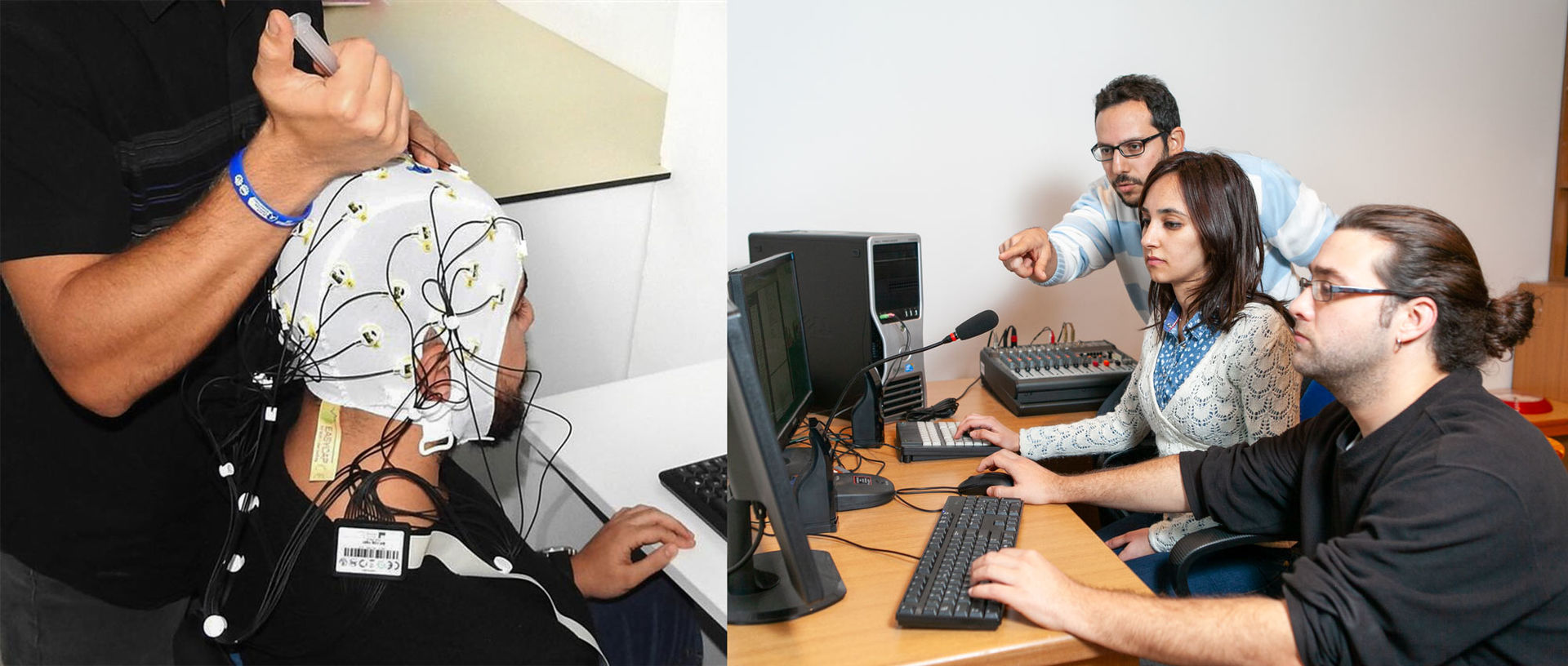Programs
The aim of the Department of Psychology undergraduate program is to introduce students to a wide variety of topics, perspectives and areas of inquiry; and to prepare them for postgraduate research in subfields such as social, developmental, industrial, health, media, clinical and traffic psychology. Courses in the English and Turkish Psychology undergraduate programs are offered exclusively to students registered in the Department of Psychology. Additionally, the department offers elective courses to students from other departments such as General Psychology, Introduction to Psychological Science, Understanding Social Behaviour, which provide basic introductory information about the science of psychology. The Department of Psychology also offers service courses to students of the Faculty of Health Sciences and the Faculty of Pharmacy.
The Department of Psychology also aims to train future academics and specialist psychologists through its postgraduate programs. The General Psychology Master's Program, which has been enrolling students since 2018, aims to develop students' ability to conduct research under supervision and help them acquire necessary knowledge and skills to be successful in contexts where they can work as specialist psychologists. The General Psychology Doctorate Program, on the other hand, started accepting applications in the Fall Term of the 2022-2023 Academic Year, after receiving formal approvals from YÖDAK (Higher Education Planning, Evaluation, Accreditation and Coordination Council) and YÖK (Council of Higher Education) that are responsible for the supervision of higher education in TRNC and in Turkey.
| Program | Degree | Years | Department |
|---|---|---|---|
| Psychology | ba Bachelor / B.S. | 4 | Psychology |
| Psychology (Turkish) | ba Bachelor / B.S. | 4 | Psychology |
| General Psychology (with Thesis) | ca Master / M.S. | 1 - 2 | Psychology |
| General Psychology | da PhD / Ph.D. | 3,5 - 5 | Psychology |
| Psychology (Minor) | ea Minor Degree | 1-3 | Psychology |
Our Mission
Psychology is the scientific study of mental processes and behaviour. Psychologists aim to understand the basis of behaviour by examining biological, cognitive, intergroup and interpersonal dynamics. To achieve this, they conduct research on many topics ranging from human development, interpersonal relationships, and behaviour patterns, to the processes of socialization within groups. EMU Department of Psychology aims to provide students with high-quality education in accordance with international standards, so that they can acquire scientific knowledge in various subfields of psychology, use reliable scientific knowledge produced within the field of psychology in various applied areas and conduct high quality research in accordance with ethical principles. EMU Department of Psychology also makes it its mission to contribute to the development of psychology as an esteemed field of science.
Administration
Chair:
Prof. Dr. İLHAN RAMAN
Vice Chair(s):
Asst. Prof. Dr. BURCU KAYA KIZILÖZ
Departmental Facilities
EMU Department of Psychology has a strong team of academic staff consisting of 13 full-time faculty members, 4 of whom are professors and 9 assistant professors; 6 part-time lecturers, and 4 research assistants who have been educated at both national and international renowned universities. Research interests of the academic staff include topics such as identity development in individuals, intergroup contact and intergroup relations, bullying, the effects of new media on development, behaviour of individuals in traffic, environmental psychology, gender relations and sexism, social identity, migration and migrants’ experiences, psychological well-being, LGBTI+ psychology, sleep studies, memory studies and neuropsychology. The department also carries out interdisciplinary research projects with its teaching staff who specialize in philosophy and sociology.
EMU Department of Psychology provides students with two computer laboratories. The department also stands out with three research laboratories equipped with latest technological systems and devices. The department also offers students the opportunity to collaborate with faculty members in their ongoing research to gain research experience.
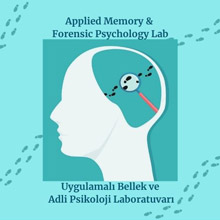
The Applied Memory and Forensic Psychology Lab
The Applied Memory and Forensic Psychology Lab was founded in 2022 and led by Assist. Prof. Dr. Dilek Çelik and Assist. Prof. Dr. Burcu Kaya Kızılöz. Our lab has a reading group consisting of graduate and undergraduate students, where we discuss theories, methodological issues, and practical applications of eyewitness memory research. Our primary objective is to carry out research on memory’s role in forensic settings. For this purpose we examine the impact of various system variables, such as the type of interview, interview instructions, misinformation effect, and estimator variables like witnesses' age, gender, suggestibility, and the characteristics of the witnessed event on eyewitness memory and confidence accuracy. Currently, we are conducting research on the ecological validity of using VR in eyewitness memory studies.
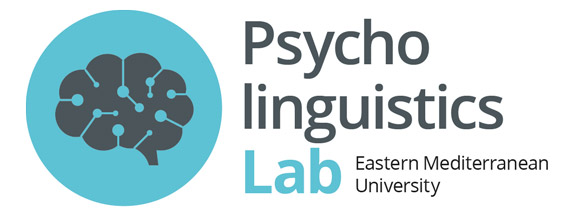
Psycholinguistics Laboratory
The Psycholinguistics Lab aims to explore how human language is presented and processed in our minds and brains and how these representations and processes interact with other domains of cognition. Our research is primarily experimental and interdisciplinary that spans various areas and topics in the language sciences such as linguistics. We are specifically interested in investigating language processing in understudied languages with unique orthographies. Areas of interest include, but not limited to, reading, typical and atypical language development, developmental dyslexia, the development of normative and diagnostic tools to assess literacy skills, cognitive neuropsychology of language such as acquired dyslexia and aphasia as well as the relationship between language and other cognitive systems, such as exploring the role of memory in bilingualism and Alzheimer’s.
Director
Professor Dr Ilhan Raman
BSc(Hons), PhD, PGCertHE, AFBPsS
Chartered Psychologist
Fellow of the Higher Education Academy, UK
Department of Psychology, EMU

UDAG
UDAG (Turkish abbreviation of Lab’s name) is established in 2020 and led by Assist. Prof. Gökçe Yılmaz Akdoğan. Currently, lab consists of 3 undergraduate level and 1 graduate level student assistants.
Our mission is conducting research on understanding development and predictors of sleep behaviours as well as sleep problems in infants, children, adolescents, and emerging adults.
Currently, there are two ongoing projects looking at the effectiveness of internet-based behavioural sleep interventions for infants and an insomnia project for university students. So far, we presented our “The Effectiveness of a Behavioural Sleep Intervention in an Infant with Hyperphenylalaninemia: A Single Subject Research Design” at the 66th National Paediatrics Congress in Kyrenia, North Cyprus.
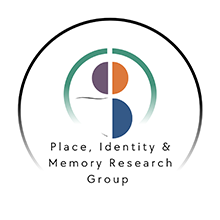
Place-Identity-Memory (PIM) Research Group
How do our perceptions, emotions, and discourses about the house, neighborhood, city, and country we live in occur? What are the reflections of spaces in our minds, or how are they represented in our minds? What is the role of design on our spatial experiences? Where do we feel at home and where do we feel like outsiders? Why do we miss our hometown or school, or avoid going to a certain place? What are the social and cultural bases of our spatial memory? Can our collective memory be considered apart from our spatial memory? Do our social identities have spatial boundaries? What are the spatial factors that contribute to social harmony or inter-group conflicts?
Our research group, established in 2024, searches for the answers to the above and similar questions in view of the concepts and theories of social and environmental psychology disciplines. It aims to contribute knowledge production through various field studies. The group's student members can participate in various field studies to gain research experience and observe real-life reflections of the social-psychological concepts and theories they have learned. In pursuing these goals, they can use both qualitative and quantitative research methods.
Our group is currently collaborating with two research assistants and 30 undergraduate students. They are all working together on various research projects.
Contact information: pimresearchgroup@gmail.com; pelin.karakus@emu.edu.tr
Group’s instagram account: @pimresearchgroup
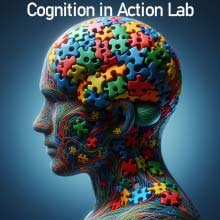
Cognition in Action Lab
Cognition in Action Lab carries out research trying to understand the cognitive processes involved in how people control their behaviour implicitly as well as explicitly. Example research questions include
- How early can people detect that they made (or about to make) an error?
- How does one's skill level affect their awareness of their movements?
- Is conscious awareness of an error necessary for detection and correction of errors?
- What kinds of inputs are needed and used by the cogntive control system to monitor performance to achieve high accuracy?
We use behavioural as well as electrophysiological data to test hypotheses regarding questions similar to thosee above. A priority is to use ecological tasks like typing when testing competing theories.
Our lab is equipped with a 32 channel EEG system, a high speed keyboard and specialized computer software that allows us to create and use a wide range of research design and carry out advanced data analysis.
If you are interested in becoming a member of our team of 15 research students us, please reach out at cigir.kalfaoglu@emu.edu.tr

DiSP Lab
The Diverse Social Psychology Lab aims to bring together students interested in topics of human interaction and societal influences as they relate to diversity, inclusion, and equity.
Our key research areas include:
Intergroup Relations: Examining how individuals from different social, ethnic, or cultural groups interact, and the dynamics of prejudice, discrimination, and stereotyping.
Prejudice Reduction: Exploring strategies and interventions aimed at decreasing negative attitudes, stereotypes, and discriminatory behaviors toward individuals based on their group membership, such as increasing intergroup contact & fostering empathy.
LGBTI+ Psychology: Understanding the experiences, well-being and mental health of individuals who identify as LGBTI+ and other diverse sexual orientations and gender identities. Particularly focusing on the impact of stigma and discrimination on LGBTI+ individuals.
Gender Psychology: Investigating how social, cultural, and psychological factors shape gender identities, roles, and expectations as well as how societal norms and stereotypes contribute to gender inequalities.
Intersectionality: Exploring how overlapping identities (e.g., race, gender, sexual orientation) influence experiences of discrimination or privilege.
Microaggressions: Research on the subtle, often unintentional, forms of discrimination and how they impact marginalized individuals.
Social Change and Activism: Understanding how collective action and movements for social justice emerge.
Cultural Psychology: Examining how culture shapes thoughts, emotions, and behaviors, including cultural differences in values, norms, and communication styles.
If you are interested in any of these topics please contact: shenelhusnu.raman@emu.edu.tr for further information.
Distinguishing Attributes
EMU Psychology Undergraduate Program curriculum is specifically designed to meet the standards of the European Diploma in Psychology (EuroPsy) and YÖK, to ensure that our students receive internationally recognized diplomas which will enable them to practice psychology anywhere they choose.EMU Psychology Department English and Turkish undergraduate programs have been accredited by the Turkish Psychologists Association Accreditation Supreme Board until 2029. These programs are among 18 accredited programs in Turkey and among TRNC universities.
Major Accomplishments
Both Turkish and English programs of the EMU Department of Psychology have graduated over 1500 students who obtained employment both on the island and abroad. Many of our graduates have been accepted to Master's and Ph.D. programs at universities in the UK, USA, and Europe.
The vision of EMU Department of Psychology is to train ethical and professional psychology graduates. In this context, the department places a strong emphasis on the importance of ethics in research and the application of psychology and has departmental committees that conduct thorough work in these areas.
Another mission of the department is to properly promote the science of psychology in TRNC and nearby geographies. In this context, our department continues its work in cooperation with the Turkish Psychologists Association, the Turkish Cypriot Psychologists Association, and the Psychology Department of Başkent University in Turkey, which it has declared its sister department since 2018.
Quality of Graduates
EMU Department of Psychology aims to provide students with high-quality education in accordance with international standards, introduce them to various subfields of psychology, and provide them with a comprehensive overview of the field. Students who complete the four-year undergraduate program will become “psychology graduates”; and students who complete the postgraduate program will acquire the title of "professional psychologist". Every year, many of our graduates are accepted to postgraduate programs throughout Europe, the UK, and the USA.
Career Opportunities
Students who receive a bachelor's degree in the Department of Psychology can work in educational institutions, in the industry, in human resources departments, in counselling centres and in private or public institutions that provide psychological services.
Psychology graduates serve in various institutions and organizations in many areas of expertise. Specialist psychologists who have completed a master's degree or an equivalent level of education are eligible to work in specialist subfields such as cognitive psychology, developmental psychology, social psychology, forensic psychology, traffic psychology, clinical psychology, and industrial psychology depending on their educational background and achievements.
Accreditations

TPD: Türk Psikologlar Derneği
EMU Psychology English and Psychology Turkish Undergraduate Programs possesses TPD accreditation.
https://psikolog.org.tr/akreditasyon/
Psychology Bachelor / Accreditation Document (PDF)
Psychology Bachelor (Turkish) / Accreditation Document (PDF)
Contact
Address:
Department of Psychology
Department of Psychology, Aristóteles Street
Eastern Mediterranean University
Famagusta, North Cyprus
Mersin 10 Turkey
Tel: +90 392 630 1389
Fax: +90 392 630 2475
E-mail: psychology@emu.edu.tr
Web: https://fas.emu.edu.tr/en/departments/psychology

